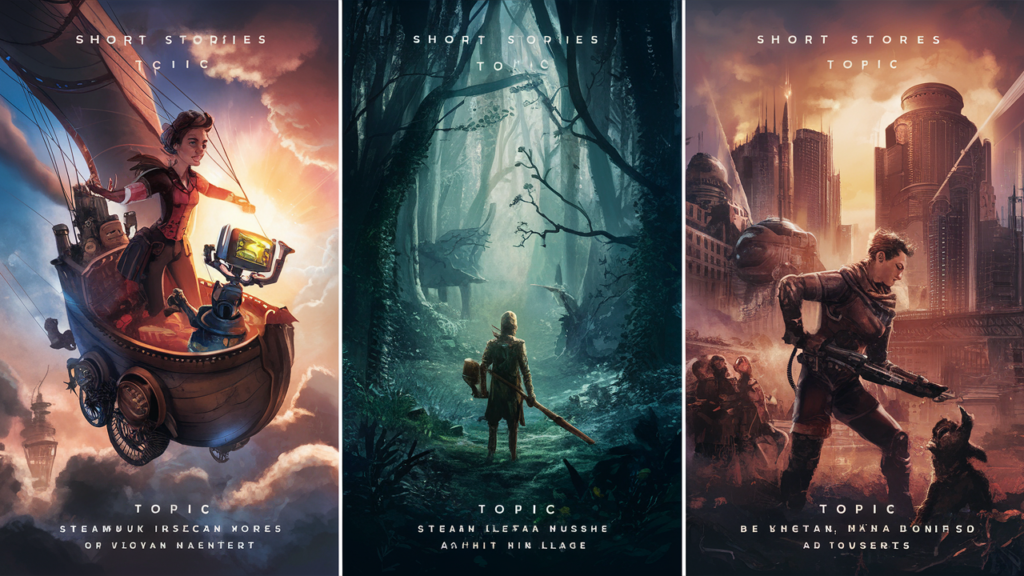In today’s digital age, everyone has a story—or ten. Whether you’re a writer, teacher, entrepreneur, or someone simply seeking to reflect, organizing your thoughts under “Your Topics | Multiple Stories” is a powerful method for expression, connection, and even healing.
Rather than sticking to one linear narrative, this approach invites you to explore different sides of a topic, using personal experiences to give your message authenticity and impact.
What Does “Your Topics | Multiple Stories” Mean?
This isn’t just a catchy phrase—it’s a framework.
You pick a topic that matters deeply to you—say, “Failure,” “Growth,” or “Freedom”—and then share multiple real-life stories that explore that theme from different angles.
Each story offers a unique lens. Together, they form a tapestry that reveals your journey, beliefs, and voice.
Why This Storytelling Method Works

Human beings are wired for stories. We don’t connect with ideas—we connect with lived experiences. By layering your content with multiple stories under a common theme, you:
- Build trust with your audience
- Give depth to your message
- Stay versatile while remaining focused
- Never run out of content
It also gives your audience multiple chances to say, “Hey, that’s me too.”
How to Choose Your Topics (And Stick to What Matters)

Here’s a simple strategy to find your topic:
- List your passions or struggles
- Circle the ones you talk about or think about the most
- Ask yourself: Do I have at least three stories connected to this?
- Choose one that lights you up emotionally
Example Topics:
- Self-worth
- Creativity
- Risk-taking
- Spirituality
- Heartbreak
- Success
Once chosen, create a journal or digital file where you can drop memories, lessons, and related content pieces.
Using a Story Map to Stay Organized 📍
Use a Story Map to structure your stories visually. Here’s a basic layout:
Topic: “Courage”
└── Story 1: The time you spoke up in school
└── Story 2: Quitting a job that didn’t align
└── Story 3: Moving to a new country
Each branch can be its own blog post, podcast episode, social media caption, or book chapter.
Want help? Download our free printable story map to brainstorm your own.
How to Tailor This Strategy for Different Platforms 🎯

✏️ Blog or Medium:
- Turn each story into a standalone post
- Include reflection questions at the end
- Link them together in a “mini-series”
🎥 YouTube or TikTok:
- Tell each story in under 90 seconds
- Use text overlays for important lessons
- Group stories by emotion (funny, sad, inspiring)
📸 Instagram or Threads:
- Use carousel posts to tell a full story
- Caption with personal takeaways
- Hashtag your theme for easy tracking
Adding Emotional Tone to Each Story 🎭

Choosing the right tone makes your story more effective. Here’s a guide:
| Story Purpose | Best Tone | Tip |
|---|---|---|
| To entertain | Humorous, casual | Use vivid imagery and pacing |
| To connect deeply | Vulnerable, sincere | Show emotions and inner dialogue |
| To inspire | Reflective, uplifting | Include lessons and transformation |
| To teach | Insightful, supportive | Break down what you learned |
By varying tone, you keep your content fresh and emotionally resonant.
Real-Life Example: One Topic, Three Stories

Topic: Self-Worth
- The Time I Got Ghosted – and realized I was chasing people who didn’t value me.
- Turning Down a Toxic Job Offer – and how I learned to prioritize my peace.
- What My Niece Taught Me – about seeing myself through kinder eyes.
Each of these has a different mood and moment, but they all help reveal the theme of self-worth.
Your Turn: Find Your Topic and Stories 📝
Ready to get started? Try this quick exercise:
- Pick one of these topics (or your own):
- Joy, Loss, Beginnings, Ambition, Failure
- Write down 3 personal stories connected to it
- Choose one and write 150 words about what happened and how you felt
Pro tip: Don’t aim for perfect—aim for honest.
Want a boost? Use this prompt:
“One moment that changed how I see [TOPIC] forever…”
Case Study: How a Creator Used “Your Topics | Multiple Stories” to Build a Personal Brand 🚀
Meet Jordan, a wellness content creator. Her topic was “Burnout.” She used this strategy to build a blog series that turned into a podcast and later a product.
Her stories included:
- Getting hospitalized from stress
- What recovery looked like in real time
- Relearning how to say “no”
Each piece drew people in and showed growth. As a result, she gained loyal followers who related to her story and trusted her advice.
Common Myths About Storytelling (And the Truth)
❌ Myth 1: You need a dramatic life to tell good stories.
✅ Truth: Everyday moments often resonate the most.
❌ Myth 2: Your stories should always end positively.
✅ Truth: Sometimes unresolved or “messy” stories are more authentic.
❌ Myth 3: You can’t repeat themes.
✅ Truth: Repetition builds clarity. You’re allowed to evolve around the same topic.
Quick Tips to Maximize Your Content Strategy ⚡

- Repurpose one story across multiple formats (blog, video, email)
- Use a consistent voice to stay recognizable
- Invite others to share their stories on the same topic (build community!)
- Keep a “story bank” to draw from over time
Final Thoughts: Start Where You Are ❤️
You don’t need to be a novelist or influencer to own your voice. You just need a story that’s real and yours. With “Your Topics | Multiple Stories,” you get the freedom to explore your identity while creating content that sticks.
🔚 Closing Call to Action: Share or Start Now
Try this:
- Download our free Story Map Template
- Write one 300-word post under a topic that matters to you
- Post it with the hashtag #MyTopicMyStories
- Tag 2 friends and invite them to do the same
Your voice matters. Your stories deserve to be told—not just once, but many times, in different ways.

Dariel Campbell, the visionary behind GetWisherz.com, infuses every wish with his signature blend of wit and warmth. His innovative ideas and passion for spreading joy are the driving forces behind the platform. Dariel’s exceptional ability to connect with people through his words makes him the heart and soul of every celebration.




